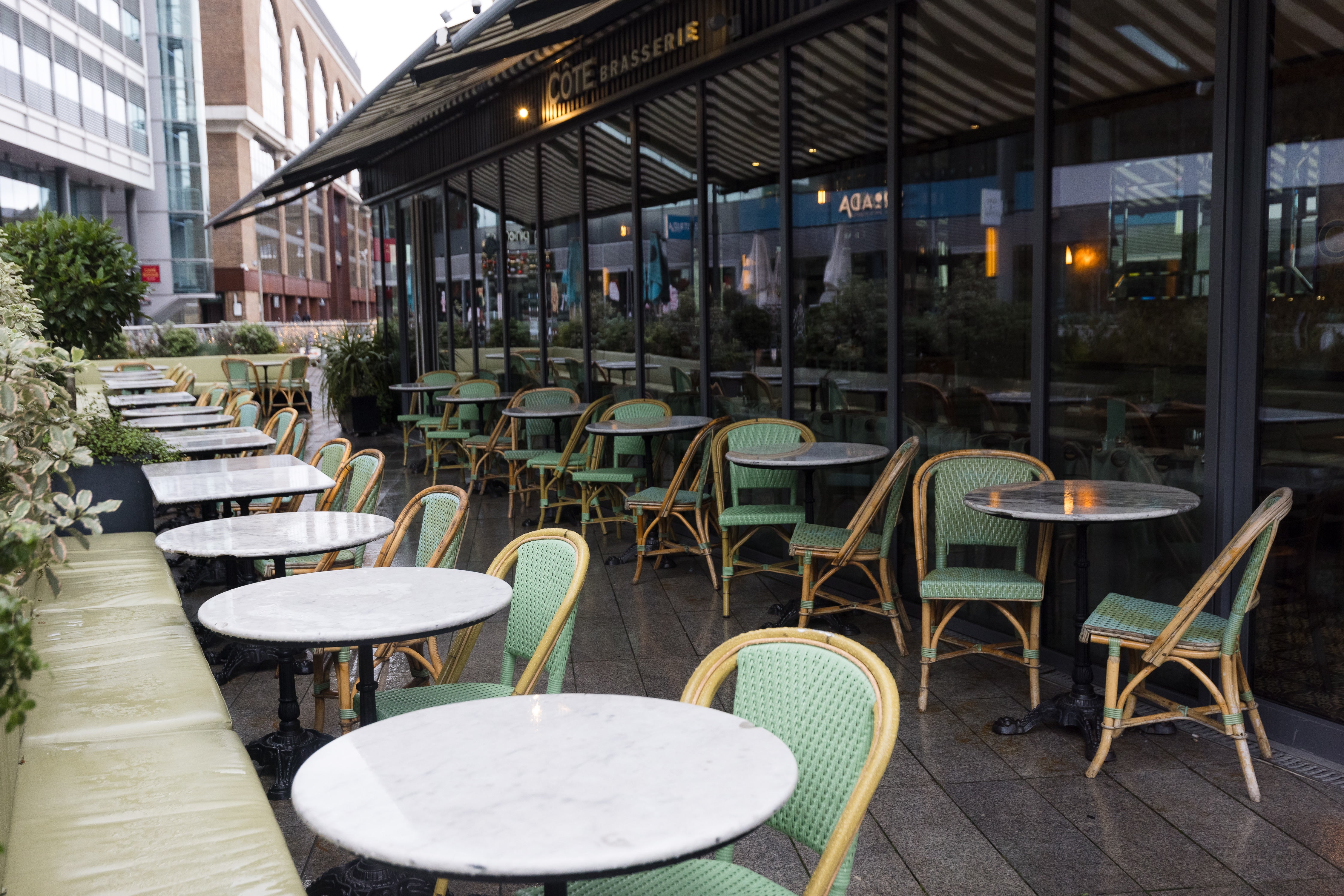Pubs, bars and restaurants lose £10,335 each in disastrous Christmas week
Losses in one week far greater than maximum support offered by government

Pubs, bars and restaurants had a disastrous run-up to Christmas, with venues losing £10,335 on average during what would usually be the busiest week of the year, according to new industry figures.
Long-suffering hospitality businesses received another blow as people cancelled festive parties to avoid catching Covid as the Omicron variant tore through the country.
Losses easily eclipsed the grants of up to £6,000 offered by Rishi Sunak to help struggling pubs and restaurants through the latest wave.
Takings were down 60 per cent on Christmas Day compared to 2019 and some hospitality businesses will not survive without additional government support or lifting of Covid restrictions, trade body UK Hospitality warned.
Venue owners fear a nightmare Christmas week will be compounded by quiet New Year’s Eve celebrations as mixed messaging from the government – and fears about record case numbers – causes people to scale back plans.
While the government has given the green light for new year festivities in England without further restrictions, Boris Johnson has advised caution.
Scotland, Wales and Northern Ireland have introduced tougher measures, with Scottish first minister Nicola Sturgeon urging people to stay home on New Year’s Eve.
Alistair Brown, founder of Bellfield Brewery in Edinburgh said he had to cancel a New Year’s Eve party of 80 people at his taproom. Grants offered to compensate firms for the latest public health measures will barely cover his expected takings from that single cancellation, he said.
The Scottish government has restricted gatherings to three households and limited indoor events to a maximum of 100 people. Additional restrictions will be “devastating” for many venues but strong online beer sales have been a “lifeline” for Bellfield Brewery, Mr Brown said.
At Heaney's restaurant in Cardiff, owner Tommy Heaney spent the run-up to Christmas phoning customers to ask if they would be cancelling their New Year’s Eve bookings.
The business had to cut the number of tables it serves by about a third to comply with new curbs announced two days before Christmas, limiting gatherings to six people and enforcing two-metre social distancing.
“We are only a small venue, we have limited space. You really don't want to be cancelling people’s bookings, especially at this time of year, but it’s what we are being forced to do,” Mr Heaney said.
Many Welsh hospitality business owners are frustrated that differences in the rules across the UK mean customers can make a New Year’s Eve celebration trip to England with fewer restrictions.
But while English businesses face less stringent rules, London businesses have been hit hardest by the latest Covid wave as workers who usually dine out have stayed home, according to UK Hospitality’s figures.
Andreas Labridis, owner of Modern Greek in central London, shut his two restaurants a week early instead of working up to New Year’s Eve, missing out on the busiest period of the year.
His flagship restaurant served just six customers on the Sunday before Christmas – one for each member of the front-of-house staff.
“People normally spend more at this time of year,” he said. “To miss that week is a huge financial hit for us but this situation is also a moral blow for the hospitality industry. We are one of the UK’s biggest employers.”
He faces large bills in early 2022 with no guarantee of customers. Modern Greek extended payment terms with its suppliers and took out loans during last year’s lockdowns which must now be repaid.
A moratorium on rent debts preventing businesses from being evicted also comes to an end and the sector faces a tax rise when VAT goes back up from 12.5 per cent to 20 per cent in April.
Simon Wright, founder of restaurant group TGP, warned that inadequate government support would worsen the damage and force restaurant owners to make “difficult decisions” about staff numbers in the new year.
“People can survive two or three weeks of disruption but £6,000 to cover a month of revenues barely touches the sides for us or for any central London business.
“If the government genuinely thinks this is a short-term situation they should support businesses through that. Otherwise, you are compounding problems.
“When a restaurant business closes down it doesn't just reopen again when things pick up. Those premises will be empty for six months at least, if they open again at all.”
Subscribe to Independent Premium to bookmark this article
Want to bookmark your favourite articles and stories to read or reference later? Start your Independent Premium subscription today.

Join our commenting forum
Join thought-provoking conversations, follow other Independent readers and see their replies